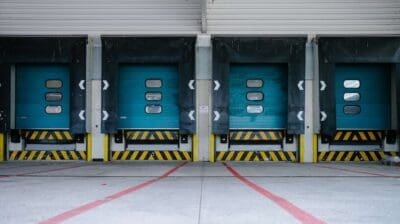The COP nudges businesses toward sustainability

The COP sets sustainability targets for countries, but the private sector is responsible for most emissions.
Even if you don’t know of the UNFCCC’s Conference of Parties, you’re almost certainly familiar with its results.
The Conference of Parties (COP) was established by the UNFCCC to assess its member states’ progress toward combating “dangerous human interference with the climate system.” The first COP was convened in Berlin in 1995, and subsequent COPs resulted in international environmental treaties like the Kyoto Protocol (COP3) and the Paris Agreement (COP21).
For a detailed history of the COP, see the first article in our Road to COP26 series

The COP’s impact on countries is clear: it sets emissions reduction targets for countries to meet. But what impact does the COP have on companies, who are the agents responsible for the vast majority of emissions?
Targets for all
The Paris agreement resulted in the well-known targets of halving emissions by 2030 and reaching net zero by 2050. Though these targets were intended for states, you’ll find them re-purposed in many “Paris-aligned” corporate sustainability manifestos.
The Climate Ambition Alliance was formed at COP25 to further involve the private sector in meeting sustainability goals. This is primarily done through its Race To Zero campaign, which encourages businesses to commit to becoming net zero:
– The Climate Ambition AllianceThe Race To Zero campaign… will bring together the leadership and support of businesses, cities, regions and investors for a healthy, resilient and carbon-free recovery that prevents future threats, creates decent jobs, and enables inclusive and sustainable growth.
Developing & sharing resources
The COP hasn’t just led to sustainability targets for companies – it’s developed ways to help companies meet them.
The COP25-born Race to Zero campaign joined forces with the International Chamber of Commerce (ICC), the Exponential Roadmap Initiative, and the We Mean Business coalition to develop the SME Climate Hub.
The SME Climate Hub makes it easier for small and medium businesses – which constitute 90% of worldwide businesses – to commit to reaching the emission reduction targets of the Paris Agreement.
Normative is the software provider to the SME Climate Hub, and after making the commitment, SMEs will be able to measure their emissions for free using Normative’s automated carbon calculator (launching soon).
– Kristian Rönn, CEO & Co-founder of NormativeCompanies are the ones most responsible for emissions. Countries try to set targets, but it’s up to companies to meet them.
The SME CH also maintains a business sustainability resource library in partnership with Oxford University and several NGOs
Additionally, the SME Climate Hub helps large corporations encourage their supply chains to join the net-zero movement. This reduces not only the emissions of those large corporations, but also the emissions of any other companies who use those suppliers.
For those looking to help their small or medium business meet Paris-aligned targets, joining the SME Climate Commitment will set you on the right path.

Summary
- The COP was established to help countries meet sustainable targets.
- COP emission reduction targets have been adopted by businesses developing sustainability goals.
- The Race to Zero is a COP-established initiative to inspire the private sector to make emissions reductions.
- Small and medium businesses can commit to reducing their emissions – and find resources to help them do so – through the SME Climate Hub.
COP 26 is taking place in Glasgow in November 2021. To understand how COP organizes the world around climate action, and what its decisions mean for countries & businesses, stay tuned for the next installment of The Road to COP26 and follow us on LinkedIn to keep up to date with the latest in emissions reporting.
Your entire carbon footprint – visualized & actionable
Normative’s emissions accounting engine shows you your company’s full climate footprint – including your supply chain – and highlights the highest-impact reduction actions you can take.







